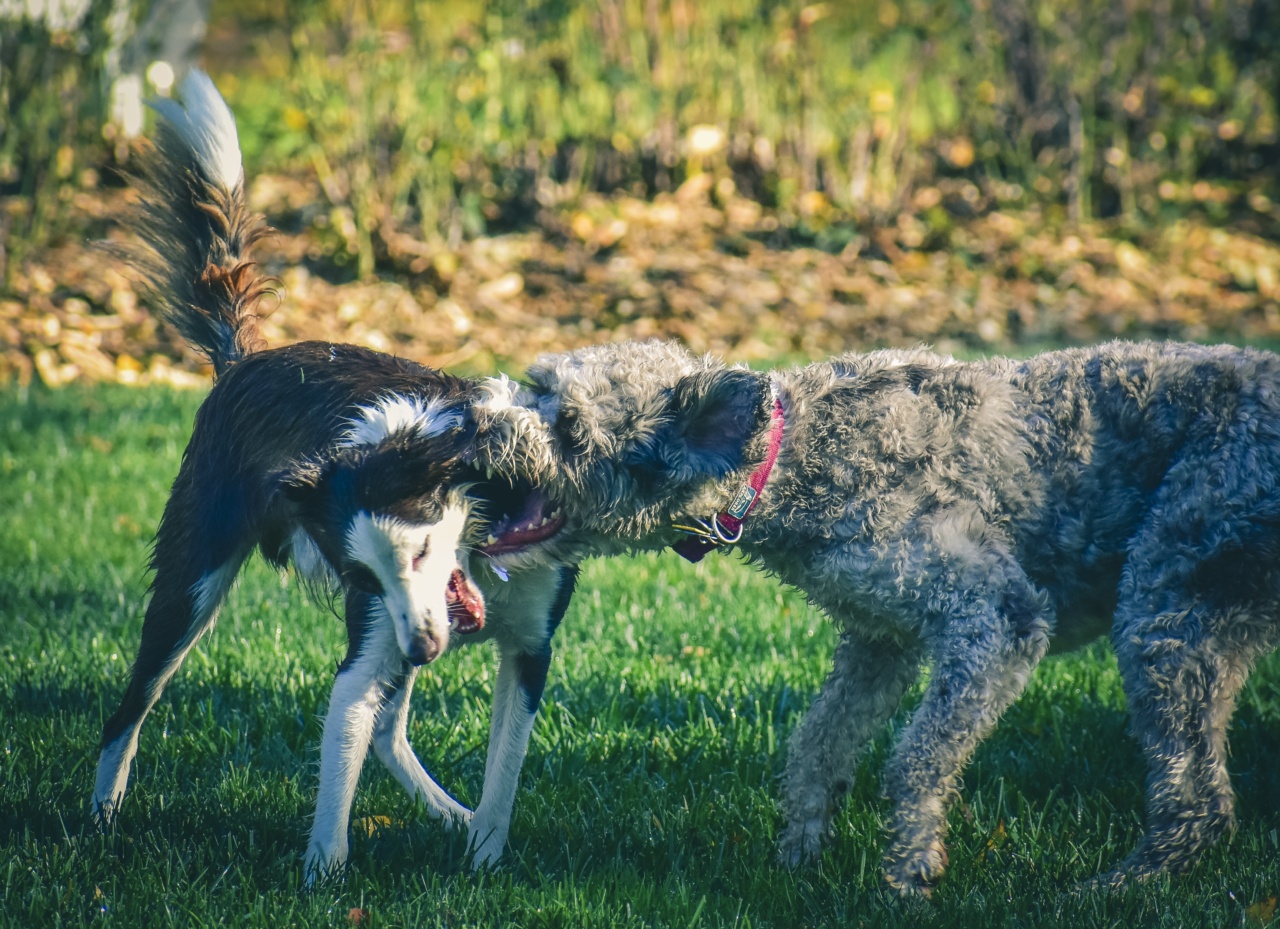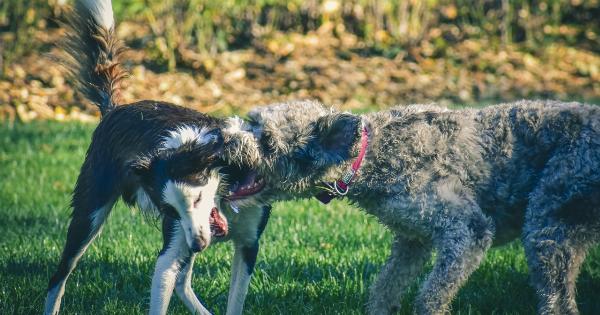Dogs are amazing companions, and most of the time, they are gentle and friendly. However, some dogs may exhibit aggressive behavior, which can be dangerous to humans and other animals.
Aggressive behavior in dogs may stem from various factors, such as environmental factors, genetics, and diet. While many dog owners are aware of how environmental and genetic factors can affect their dog’s behavior, most are unaware of how diet influences their dog’s aggression.
In this article, we’ll explore how diet impacts dog aggression and the steps that dog owners should take to mitigate the problem.
What is Dog Aggression?
Dog aggression refers to a dog’s tendency to harm others through biting, growling, and snarling. Aggressive dogs can be dangerous, and their behavior should not be ignored. Aggressive behavior in dogs can stem from many factors, including:.
- Environmental factors: such as lack of socialization, abuse, and training.
- Genetic factors: certain breeds are more prone to aggressive behavior than others.
- Health issues: pain, anxiety, and fear can trigger aggressive behavior in dogs.
- Diet: some dog foods may trigger aggressive behavior in dogs.
How Does Diet Affect Dog Aggression?
Many dog owners are unaware of how diet can impact their dog’s aggression. Veterinarians and animal behaviorists have found that certain ingredients and nutrients in dog food can affect a dog’s behavior and personality.
Here are some ways in which diet can affect dog aggression:.
1. Sugar and Artificial Sweeteners
Sugar and artificial sweeteners have been linked to hyperactivity and aggressive behavior in dogs. According to some studies, dogs that have been fed sugar or artificial sweeteners tend to be more aggressive than those that have not.
It’s therefore important to avoid feeding your dog foods that contain artificial sweeteners or high levels of sugar.
2. Proteins
Proteins are necessary for a dog’s growth and development. However, some types of proteins can trigger aggressive behavior in dogs. For example, beef and chicken proteins are among the most common triggers for dog aggression.
If you notice that your dog becomes aggressive after eating foods that contain beef or chicken protein, it’s advisable to switch to fish or lamb protein sources.
3. Carbohydrates
Carbohydrates play an important role in a dog’s diet. However, high levels of carbohydrates can lead to obesity, which can, in turn, trigger aggressive behavior in dogs.
Dog food that contains high levels of carbohydrates can also cause fluctuations in blood sugar levels, which can lead to increased irritability and aggression.
4. Food Additives
Many commercial dog foods contain food additives such as preservatives and dyes. These additives have been linked to aggressive behavior in dogs.
When selecting dog food, it’s important to read the ingredients label and avoid foods that contain these additives.
5. Nutrients
Some nutrients, such as omega-3 fatty acids, have been linked to improved behavior and reduced aggression in dogs. Omega-3 fatty acids are found in fish oil, and you can also find them in dog food that contains fish protein sources.
L-theanine is another nutrient that can help to reduce anxiety and improve behavior in dogs.
Ways to Reduce Dog Aggression
While diet can impact dog aggression, it’s important to note that many other factors can cause aggressive behavior in dogs. However, by following some simple steps, dog owners can help to reduce their dog’s aggressive behavior.
1. Consult with Your Veterinarian
If you notice that your dog is exhibiting aggressive behavior, it’s advisable to take them to the veterinarian. The veterinarian will carry out a comprehensive checkup to rule out underlying health issues that may be triggering the behavior.
If a health issue is identified, the veterinarian will recommend treatment options that can help to reduce the aggression.
2. Monitor Your Dog’s Diet
As we have seen, diet can trigger or reduce dog aggression. As such, it’s essential to monitor your dog’s diet and avoid foods that contain ingredients that can cause aggressive behavior.
Consider feeding your dog a well-balanced diet that contains lean protein, healthy fats, and complex carbohydrates. When shopping for dog food, always read the ingredients label and avoid foods that contain artificial sweeteners, preservatives, dyes, and high levels of sugar and carbohydrates.
3. Provide Adequate Exercise and Training
Dogs that don’t get enough exercise and training may become bored and aggressive. As such, it’s important to provide your dog with enough physical exercise and mental stimulation.
Consider taking your dog for long walks or runs and engaging them in activities such as fetching, chasing toys, and playing with other dogs. Additionally, training can help to improve your dog’s behavior and reduce their aggression. Consider enrolling your dog in training classes, where they can learn basic obedience commands.
4. Avoid Triggers
Aggressive behavior in dogs can be triggered by various stimuli, such as loud noises, unfamiliar people, and other animals. As such, it’s important to avoid situations that may trigger your dog’s aggression.
Keep your dog away from unfamiliar people and animals, and avoid loud noises that may startle your dog.
Conclusion
Dog aggression can be a serious problem that can have dangerous consequences. While many factors can trigger dog aggression, diet can play a significant role.
When purchasing dog food, it’s important to read the ingredients label and avoid foods that contain artificial sweeteners, high levels of sugar and carbohydrates, and food additives. Additionally, supplementing your dog’s diet with nutrients such as omega-3 fatty acids and L-theanine can help to reduce their aggression.
By following these steps and consulting with your veterinarian, you can help to reduce your dog’s aggression and improve their behavior and quality of life.
























